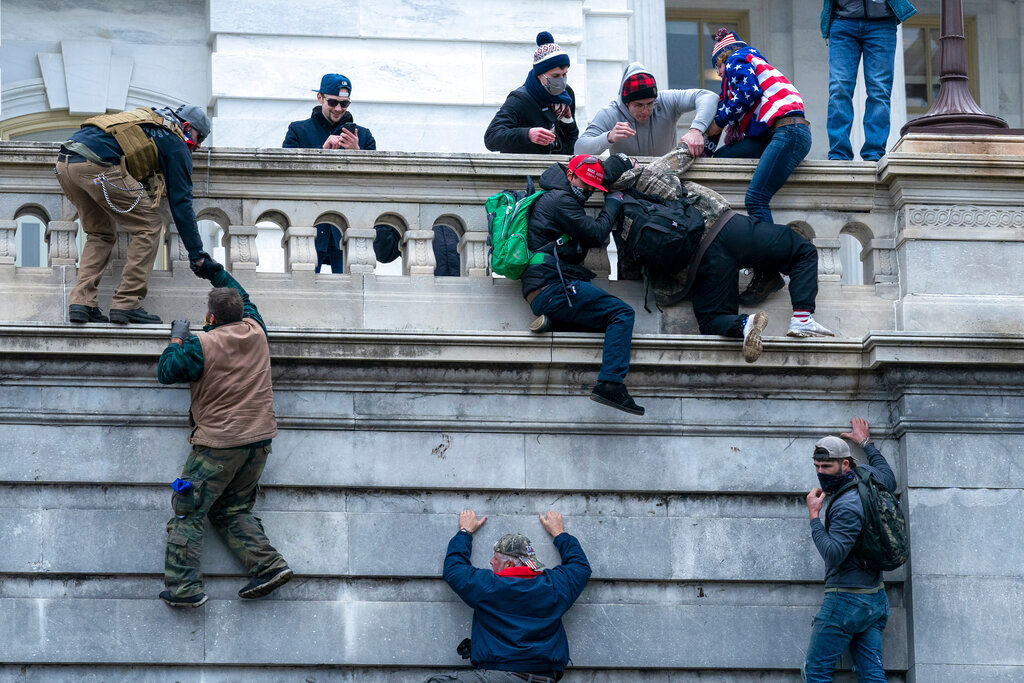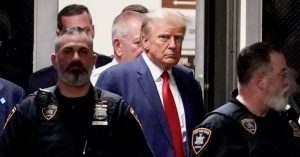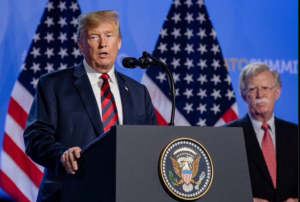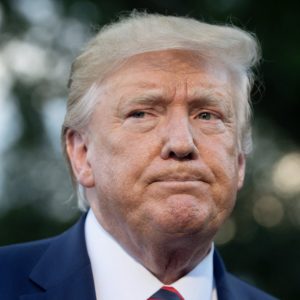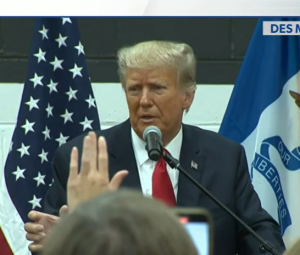The United States House Select Committee to Investigate the January 6th Attack on the United States Capitol, popularly dubbed as the Jan 6. Committee, is a committee of the United States House of Representatives established on July 1, 2021, largely along party lines, to investigate the attack on the United States Capitol on January 6 of that year.
The attack was the climax of efforts to sway the outcome of the 2020 presidential election in the United States, in which incumbent Republican Donald Trump lost to Democrat Joe Biden.
Also Read: January 6 Capitol riots: The 5 people who died in Washington DC
June 30, 2021: The motion to establish the committee passed by a vote of 222 to 190 on June 30, 2021, with all Democratic members voting in favour and two Republican members, Adam Kinzinger and Liz Cheney. Sixteen Republicans abstained from voting. Pelosi could choose eight members to the committee, while House Minority Leader Kevin McCarthy could appoint five members “in consultation” with Pelosi, according to the resolution. Pelosi has stated that one of her eight appointees will be a Republican.
Also Read: How safe is US Capitol now?
July 1, 2021: Pelosi selected eight members on July 1, seven Democrats and one Republican, Liz Cheney, to the committee, with Bennie Thompson serving as chair. McCarthy announced the five members of the select committee’s minority that he will recommend on July 19.
July 21, 2021: In an interview, Thompson claimed that as part of the investigation into the Capitol incident, he will look into Trump. Pelosi later said in a statement that she had notified McCarthy that she would reject Jordan and Banks’ recommendations, citing concerns about the investigation’s integrity as well as the two members’ actions and words. She agreed with the other three’s suggestions. McCarthy subsequently withdrew all of his committee candidates and announced that he would not nominate anyone unless all five of his choices were accepted.
Pelosi named Adam Kinzinger to the committee after McCarthy retracted his recommendations. Kinzinger was one of ten House Republicans who voted to impeach Trump for the second time. Former Rep. Denver Riggleman, who met with Cheney and Pelosi, was one of the Republicans Pelosi was considering hiring as an outside committee worker or advisor. Cheney expressed her support and urged both of them to participate.
Also Read: Iowa man and Minnesota son plead guilty in Capitol riot case
July 25 2021: Kinzinger’s selection to the select committee was officially announced by Pelosi.
July 27, 2021: The committee hears from four police officers who were on the front lines when rioters invaded the Capitol for the first time. The entire committee had spent the day before preparing. Thompson and Cheney make their opening remarks.
August 23, 2021: Committee investigators want to look into the phone records of a number of people, including members of Congress. The committee also requested data from seven government agencies and the National Archives and Records Administration (NARA), which archives White House communication records, for at least thirty individuals of Trump’s closest circle.
Also Read: January 6 Capitol riots: Complete list of events planned for 1st anniversary
August 27, 2021: The committee is requesting documents from 15 social media companies dating back to spring 2020.
September 1, 2021: According to the Guardian, the committee is looking into whether the White House was involved in the preparation of the Capitol attack and whether Trump was aware of the unrest before time.
September 13, 2021: According to the Guardian, the records preservation requests include White House Chief of Staff Mark Meadows, as well as Republican members of Congress.
September 22, 2021: The committee is considering issuing subpoenas for call records or testimony from key Trump administration officials such as Meadows, Deputy Chief of Staff Dan Scavino, and former Trump campaign manager Brad Parscale, according to the Guardian.
September 23, 2021: Meadows, Scavino, chief strategist Steve Bannon, and Pentagon official and former Devin Nunes assistant Kash Patel have all been served with subpoenas by the committee. Documents must be submitted by October 7th. On October 14, Bannon and Patel will speak before the committee, while Meadows and Scavino will testify on October 15. Meadows has been rescheduled for November 12 after being given a postponement.
September 29, 2021: The committee has subpoenaed Amy Kremer and 10 people linked with her organisation Women for America First, which held the permission for the Stop the Steal demonstration that preceded the Capitol attack. Katrina Pierson, Trump’s 2016 campaign’s national spokesperson, is one of the eleven people on the list.
October 6, 2021: Trump and his lawyers were telling the four Trump aides who were subpoenaed on September 23 to ignore the orders and refuse to comply with both the document and testimony requests.
October 7, 2021: Trump’s attorney formally told the four advisers to ignore the orders and not submit any documents or testimony. As the committee issues more subpoenas to Stop the Steal LLC, Stop the Steal campaign organiser Ali Alexander, and fellow rally organiser Nathan Martin later that day, Trump announces that he would use executive privilege to withhold the records the committee had demanded in August.
October 8, 2021: Biden would not honour Trump’s request to invoke presidential privilege to prevent NARA from releasing these materials, according to White House Press Secretary Jen Psaki. Despite this, Trump writes to the National Archives and Records Administration (NARA) asserting privilege over around forty papers. On the same day, White House attorney Dana Remus informed NARA archivist David Ferriero that the contested records would be disclosed once Trump has been given a 30-day courtesy warning.
In a letter to the committee, Bannon’s lawyer claims that Bannon would not cooperate with the subpoena for his testimony because Trump had invoked executive privilege and told him to ignore the subpoena.
October 13, 2021: Jeffrey Clark is subpoenaed by the committee and will produce papers and testimony later this month. Clark lobbied for a promotion to attorney general by assuring Trump that he would help overturn the election results while serving as assistant attorney general. The committee interviews former acting attorney general Jeffrey Rosen, who fought Clark’s efforts to tamper with the election results.
October 14, 2021: If Bannon fails to show up for his scheduled deposition, the committee says it will file criminal contempt charges against him. Patel and Meadows’ depositions, set for October 14 and 15, have been postponed by the committee because they are “engaged” in their inquiry.
October 18, 2021: Trump is suing to prevent NARA from providing the records to the committee at all, or at the very least to allow him to “perform a comprehensive privilege assessment of all of the requested materials” so he may pick and choose which documents NARA provides. The documents request was “illegal, unjustified, and overbroad,” according to his lawsuit, and amounted to a “fishing expedition.” Attorney Jesse R. Binnall filed the case on Trump’s behalf. Meanwhile, the National Archives and Records Administration (NARA) expects to disclose the records on November 12th.
October 19, 2021: The committee unanimously decides to accept a report accusing Bannon of contempt of Congress and refer it to the entire House for a vote.
October 21, 2021: The resolution to hold Bannon in contempt of Congress has the support of all 220 House Democrats and 9 House Republicans, a majority that sends Bannon’s case to the Justice Department. The Department of Justice is debating whether or not to prosecute Bannon. According to Stanley Brand, former general counsel for the House of Representatives, a conviction may take years.
October 22, 2021: Alyssa Farah, the former Trump director of strategic communications, was interviewed by Cheney and Kinzinger, according to CNN. After the January 6 attack, she resigned in December 2020 and told CNN that Trump had lied to the American people about the election results.
October 25, 2021: Biden reiterated that he would not invoke executive privilege in response to the committee’s second request for materials from NARA.
October 26, 2021: More persons are anticipated to be subpoenaed, according to the Washington Post, including legal professor John Eastman, who backed Trump’s statements regarding the 2020 election.
October 27, 2021: Jeffrey Clark fails to show up for his planned deposition after parting ties with his counsel a few days before.
October 30, 2021: NARA discloses what Trump asked to be hidden from the committee in a court filing. Among the almost 1,600 pages of papers requested by the committee, Trump attempted to block about 750 pages. Hundreds of pages of Trump press secretary Kayleigh McEnany’s remarks and talking points were among them, as were daily presidential diaries, timetables, appointment information, and White House visitor, activity, and phone logs from January 6 and beyond.
November 8, 2021: The committee issues subpoenas to six people: Trump 2020 campaign manager Bill Stepien; campaign senior advisor Jason Miller; former Trump national security adviser Michael Flynn; conservative lawyer and former professor John Eastman; Angela McCallum, the campaign’s executive assistant; and Bernard Kerik, a Trump ally who attended meetings at the Willard Hotel about efforts to overturn the election. The following day, ten more Trump officials and advisers are subpoenaed.
November 9, 2021: Trump’s October 18 attempt to halt NARA from disclosing documents was denied by federal judge Tanya Chutkan. Trump’s assertion “that he may override the express desire of the executive branch appears to be founded on the concept that his executive power ‘exists in perpetuity,’ she wrote in a 39-page ruling. Presidents, on the other hand, are not kings, and Plaintiff is not the President.”
Trump asks Chutkan for an injunction right away, which she denies. On November 11, the DC Circuit Court of Appeals granted Trump’s request for an injunction, and a three-judge panel will hear oral arguments on November 30.
November 12, 2021: Meadows does not show up for his scheduled testimony. On the same day, Bannon is indicted in federal court on two charges of criminal contempt of Congress, and he surrenders to the FBI on November 15.
November 22, 2021: Subpoenas have been issued for InfoWars host Alex Jones, longtime Republican operative Roger Stone, two Stop the Steal organisers, Dustin Stockton and Jennifer Lawrence, and Trump spokesman and Save America PAC communications director Taylor Budowich, as well as two Stop the Steal organisers, Dustin Stockton and Jennifer Lawrence. The following day, warrants are issued for the Proud Boys and Oath Keepers, as well as their respective leaders, Enrique Tarrio and Stewart Rhodes. On the same day, Robert Patrick Lewis, the head of 1st Amendment Praetorian, an organisation accused of providing security at multiple demonstrations prior to January 6, is subpoenaed.
November 24, 2021: Trump’s attorneys have filed a reply brief in anticipation of the November 30 hearing on the release of NARA records. They believe that Biden’s readiness to release the data was for his “own political gain” and that it “will result in permanent damage to the presidency’s institution.”
November 30, 2021: The DC Circuit Court of Appeals heard Trump’s argument as scheduled. Trump’s lawyers have asked the judges to analyse each document separately and decide whether or not to provide it to Congress. This request is denied by the three judges.
December 1, 2021: The committee unanimously decides that Jeffrey Clark should be held in contempt of Congress.
Colonel Earl G. Matthews sends a 36-page memorandum to the committee disputing the findings of the DoD Inspector General report on the riot response.
December 7, 2021: Mark Meadows says he will stop cooperating in a letter from his lawyer. Meadows had already submitted 2,300 text messages and 6,800 pages of emails by that time, including his text messages from January 6 in which he told others of Trump’s actions during the riot. A 38-page PowerPoint presentation titled “Election Fraud, Foreign Interference, and Options for 6 JAN” to be provided “on the hill” on January 5; and a November 6 text exchange with a member of Congress in which Meadows reportedly said “I love it” in a discussion about the possibility; and an email from November 7 detailing the establishment of alternate slates of electors as part of a post-election “direct and collateral attack.”
December 9, 2021: Trump’s plea to have his White House records concealed from the committee is unanimously rejected by a three-judge panel of the DC Circuit Court of Appeals. However, NARA must continue to withhold the data for another 14 days to give Trump enough time to file an appeal with the US Supreme Court.
December 10, 2021: Meadows’ attorney told the New York Times that the PowerPoint presentation his client gave to the committee arrived in his email inbox, but Meadows did not act on it. The next day, the Washington Post reported that Phil Waldron, a retired Army colonel who specialised in psychological operations during his career, had disseminated the presentation, which presented an extensive idea that China and Venezuela had taken control of voting machines.
December 12, 2021: Meadows wrote an email on January 5 saying that the National Guard would “defend pro-Trump folks,” according to a report obtained by the committee.
December 13, 2021: Cheney read aloud a sample of text messages Meadows received on and around January 6 before the committee unanimously agreed to recommend a contempt of Congress charge against Meadows to the full House.
December 14, 2021: Meadows was found in criminal contempt of Congress and the matter was referred to the Justice Department by the House, which voted 222–208. Liz Cheney and Adam Kinzinger, both members of the committee, were the only two Republicans to join Democrats in voting against Meadows.
December 16, 2021: In writing, the White House Counsel’s Office agreed to put off their request for NARA to release select papers. Despite Biden’s denial of Trump’s claim of executive privilege, the White House had its own reservations about the records request, arguing that it should be restricted to avoid exposing highly secret or irrelevant information.
December 17, 2021: Roger Stone testified before the committee, claiming his right to decline to answer questions under the Fifth Amendment. He argued, through his legal team, that he was evading the committee’s “elaborate trap” of “loaded questions.”
December 20, 2021: Representative Scott Perry was asked to give information concerning his involvement in the endeavour to install Jeffrey Clark as acting attorney general in a letter from committee chair Thompson.
The request was turned down the next day by Perry.
December 22, 2021: Thompson requested a meeting with Congressman Jim Jordan on or around January 6 to discuss his conversations with Trump and perhaps his associates.
December 23, 2021: The committee was considering recommending to the Department of Justice that a possible criminal probe into Trump’s behaviour on January 6 be opened.
December 24, 2021: Current Trump spokesman Taylor Budowich said in a court filing that he had cooperated extensively with the committee by providing 1,700 pages of documents and about four hours of sworn testimony relating to the planning and financing of Trump’s speech outside the White House on January 6 while suing to block a subpoena of his bank records from JP Morgan.
December 27, 2021: The committee would look into a call Trump made to his associates at the Willard Hotel the night before the attack, according to Thompson. The call was first revealed by The Guardian on November 30.
December 29, 2021: If the committee’s work had any “legislative purpose,” Trump’s lawyer protested to the Supreme Court, it was only a pretext for “what is effectively a law enforcement inquiry.” According to Trump’s lawyers, this would nullify the probe because the congressional authority requires a legislative purpose. Trump’s lawyer noted a prior week’s Washington Post interview with Thompson, in which the committee chair stated that a criminal referral would be required.
December 31, 2021: Bernard Kerik presented the committee with documents, including a “privilege log” listing attorney work product documents he refused to release. The record included a draft letter from the president ordering the seizure of election-related evidence for national security reasons.

